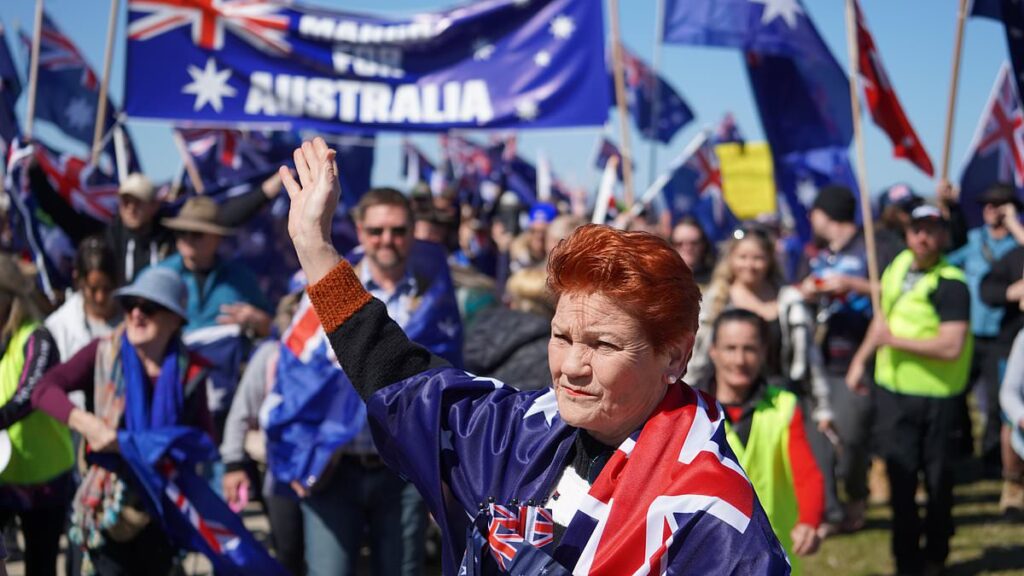
Senator Pauline Hanson has faced criticism for her participation in the March for Australia rallies, despite police and her own staff advising against it due to safety concerns. The One Nation leader claims she received a warm reception from Asian migrants during the event, which took place across major Australian cities on Sunday.
In an interview with Sky News, Hanson revealed that she was cautioned by police not to attend the rallies, which had reportedly been infiltrated by far-right elements, including neo-Nazis. “Anyway, I thought, no, I’m going,” she stated. “Then even the police rang me and said, ‘Look, we don’t really want you going.’ And I said, I’m not there to cause any trouble. If any trouble’s going to be had, go and arrest the other protesters.”
The rallies have sparked a broader debate about freedom of assembly and the perceived double standards in how different protests are policed. Hanson pointed to pro-Palestinian demonstrations as an example, questioning why her rally faced restrictions while others did not. “Why should we be shut down and told we shouldn’t attend these things, yet you allow the Palestinian marches every weekend for the last two years?” she asked.
Government Response and Accusations of Racism
Meanwhile, Multicultural Affairs Minister Anne Aly criticized the rallies, suggesting they were targeted at migrants from non-Western countries. “It’s very clear from the conduct observed at these marches that they were a con by the far-right neo-Nazis to prey on some legitimate concerns around housing and cost of living to propagate their anti-immigration, racist agenda,” she told ABC radio.
Minister Aly highlighted specific calls to action against Indian immigration as evidence of the rallies’ racist undertones. “When you target a specific ethnicity, that is clearly racism,” she added.
However, Hanson refuted these claims, insisting that the rallies were not about race but about the impact of mass migration on Australia’s infrastructure and quality of life. “It’s got nothing to do with the culture or the migrants who have come here. It’s about the numbers coming into Australia and the impact,” she said.
Public Reaction and Future Implications
Despite the controversy, Hanson reported positive interactions with new migrants at the rallies, particularly Asian Australians. “It was wonderful to see. They’re embracing me. You know, they think I’m racist against Asians? Who else am I getting hugs and kisses from? The Asian people. But they’re Australians to me. They’re proud to be Australians,” she stated.
The rallies drew tens of thousands of participants, including nationalists and their pets, in cities such as Sydney, Melbourne, Brisbane, and Canberra. While organizers emphasized that the events were not anti-immigrant, some speeches veered into xenophobic territory, with one speaker in Sydney promoting a theory about a “clear global agenda to replace people with Anglo-Celtic and European heritage.”
Looking Ahead: Potential for More Rallies
Hanson concluded with a message for migrants who do not wish to assimilate, saying, “If you don’t love this country, if you don’t want a part of it, if you don’t want to assimilate, then I’ll be the one to take you to the airport and put you on a plane and wave you. Hooray.”
She also hinted at the possibility of more rallies in the future. “Australians will want to get out there now that they know these peaceful rallies can be held around the country and feel that they show their support to be Australian and be proud of it,” she said.
This development follows a growing trend of public demonstrations in Australia, reflecting wider societal debates about immigration, national identity, and multiculturalism. As the nation grapples with these complex issues, the discourse is likely to intensify, with implications for both domestic policy and international perceptions of Australia.






